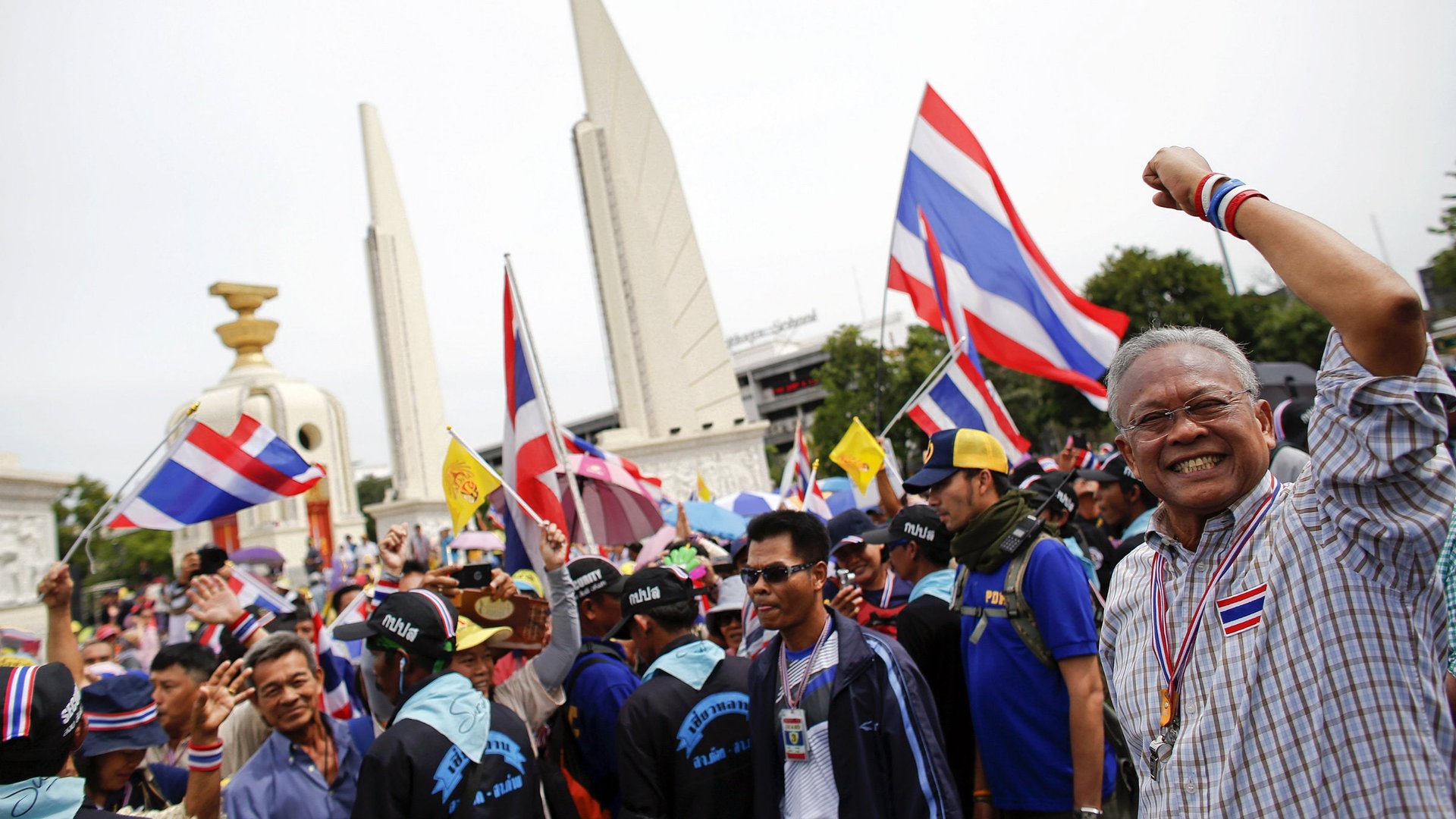The economy is getting sticky in Teflon Thailand
Thailand’s political chaos has been waxing and waning for more than a decade, but it has done little to derail economic expansion, earning the country a famously nonstick reputation—until now.


Thailand’s political chaos has been waxing and waning for more than a decade, but it has done little to derail economic expansion, earning the country a famously nonstick reputation—until now.
The last quarter in which Thailand’s economy contracted was in 2011, when devastating floods hit the country. This time around, the trouble is entirely man-made. Months of paralyzing street protests and the recent ouster of prime minister Yingluck Shinawatra caused first-quarter GDP to shrink 0.6% year-on-year, according to new data released today. That was even worse than analysts expected.
The country, mired in an intractable feud between mostly rural lower-class citizens and the upper-class Thai establishment, currently has a caretaker government in place but no certain date set for new elections. The temporary government is restricted in its ability to stimulate the economy, which could make the contraction worse.
Despite the tumult of the last decade, Thailand has transformed into a comfortably middle-income country. The economy is bolstered by spending from a newly affluent middle class, who pack the country’s innumerable shopping malls, along with tourist spending and a manufacturing sector that churns out automobiles from US and Japanese firms.
Those economic pillars are now looking a little shaky. Private consumption (down 2.1%), manufacturing (down 2.7%) and investment (down 9.8%) underperformed analyst expectations in the third quarters, due to doubts about whether Thailand’s political stand-off can ever be resolved. The tourism sector has also taken a hit, due to a series of high-profile attacks on political demonstrators that have killed more than two dozen people this year.
The Thai economy “is likely to grow at a slow pace as a result of the economic contraction in the first quarter,” as ”political uncertainty” limits growth, the country’s National Economic and Social Development Board said in a statement. It now expects 1.5-2.5% expansion in 2014, down from a previous estimate of 3-4%.